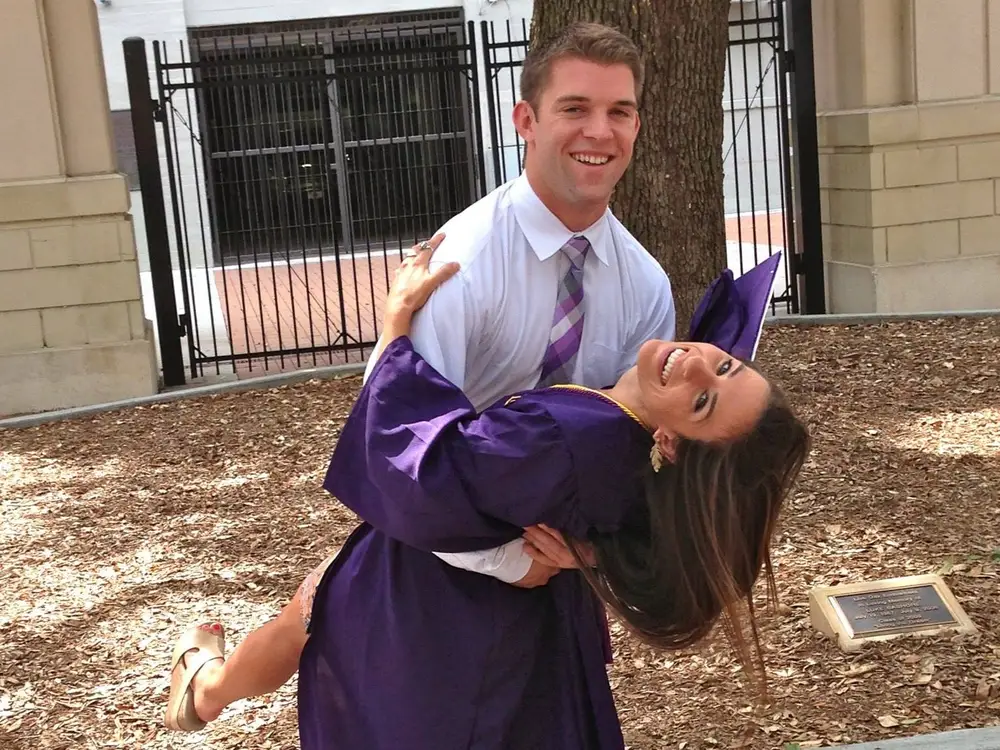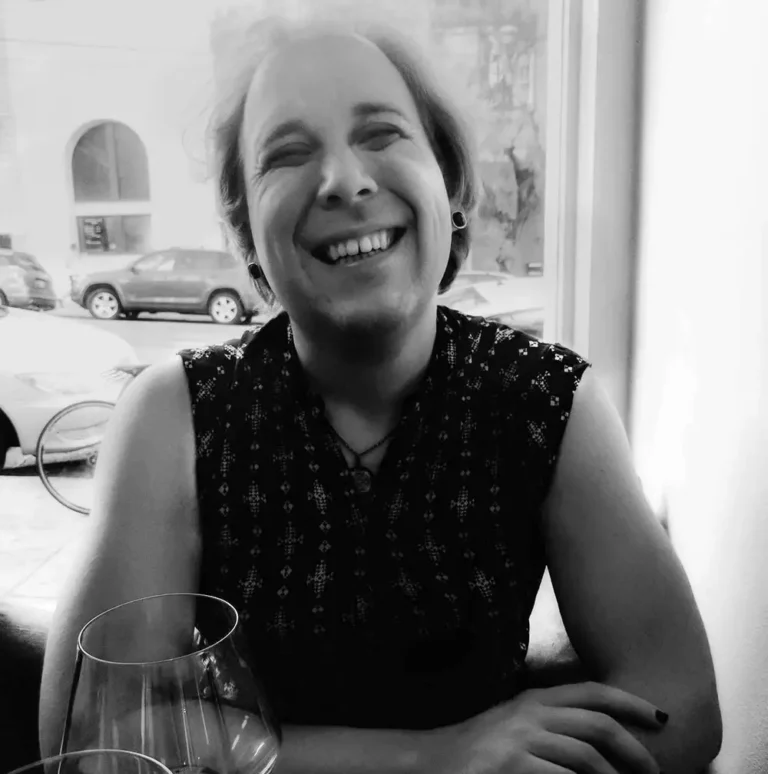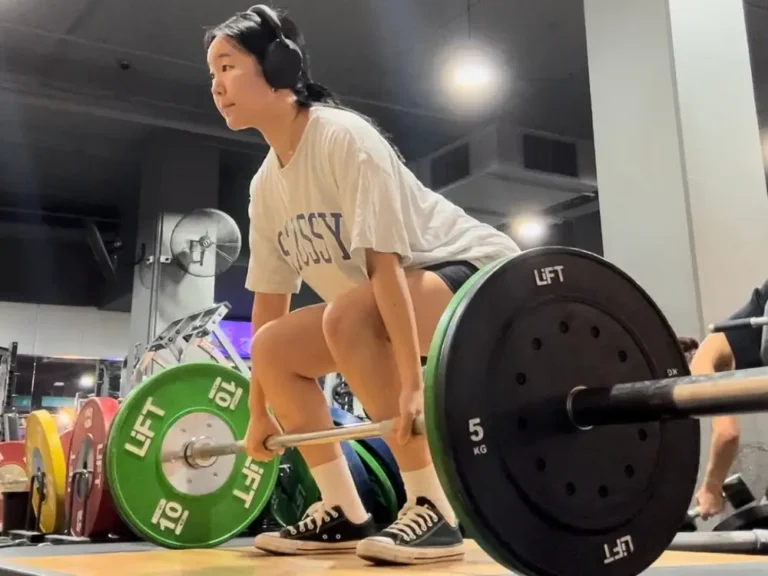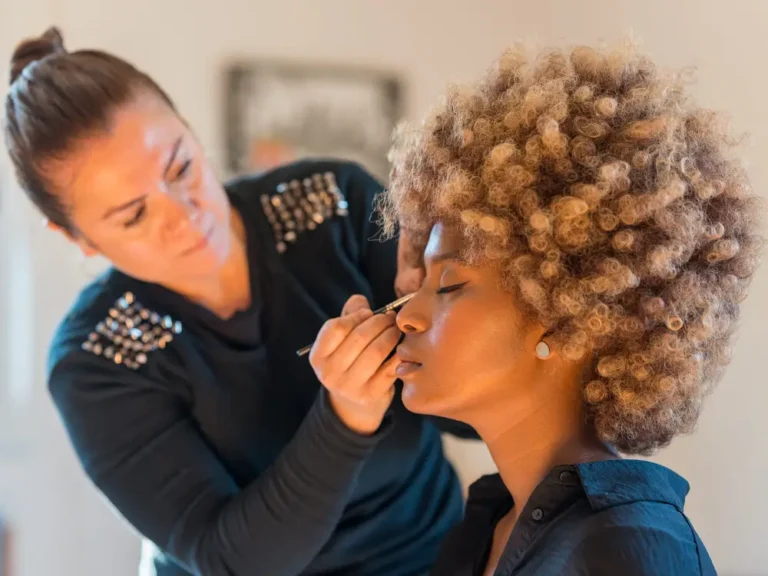Growing up in the Bible Belt, I thought men were supposed to make the first move. But I asked my husband out first in college.

The author made the first move on her future husband in college.
By the time I transferred colleges my junior year, I’d sworn off dating. In fact, I made peace with the idea that I might never marry or have kids.
This may sound extreme for someone in their early 20s, but in Bible Belt culture, marrying young is normal and encouraged. It’s no secret that conservative Christians hold traditional marriage, family, and gender roles in high esteem. Growing up a good southern girl, I hoped and prayed for a “man of God” to sweep me off my feet.
Outside hoping and praying, I didn’t feel like I had much agency in my romantic life. Since a woman was supposed to follow a man’s lead, I waited — like Rapunzel locked in a tower. I thought I needed Prince Charming to save me, but I really needed to cast myself as the leading character in my life.
I spent my first two years of college in limbo
My love life felt completely out of my control during my freshman and sophomore years. I agonized over texts from potential boyfriends, never certain of my relationship status. I lost sleep trying to figure out what I’d done wrong to deserve such treatment.
Against my better judgment, I attempted to be the woman that those men wanted me to be. But it wasn’t working, and I felt powerless to change my situation.
Around the same time, I dropped my architecture major and quit the track team. These experiences (and the anxiety that accompanied them) left me longing for a fresh start. I decided to switch schools and vowed not to let my dating life drag me down. Instead, I threw myself into extracurriculars and focused on making new friends.
And then I met Thomas.
I asked him out
I was instantly intrigued by him. Our paths first crossed via the triathlon club, and we shared many other common interests — books, music, and milkshakes. We enjoyed each other’s company and became fast friends. Before long, though, I realized that I wanted something more.
A band that I liked was playing at a nearby bar. I wanted to go, but I didn’t want to go alone. Since I was still new to school and didn’t have many friends, I thought to invite Thomas.
“But what if he thinks it’s a date?” I remember asking my mom.
“Well, are you sure it’s not?” she replied.
I wasn’t sure. In my mind, it couldn’t really be a date unless he initiated it. In every fairytale and romcom, the men pursue, and the women respond. It was tradition. I didn’t want to mess things up between us by jumping the gun. What if he didn’t feel the same?
Eventually, though, my impatience got the best of me. I worked up the nerve to ask him, convincing myself that we could go as just friends.
On the other hand, Thomas assumed we were going on a date. It was our first time getting together outside triathlon practice, and he was excited. He didn’t play by the same dating rules that I had been conditioned to follow.
Imagine his surprise when I mentioned during the concert: “I’m glad we could come here as friends.”
He later admitted that this statement felt like a dagger to the heart.
I was embarrassed to share my true feelings
Despite my feelings for Thomas, I was ashamed to admit that I made the first move because it deviated from the cultural norm. I worried whether others would approve of my bold behavior, and I wondered if our relationship would suffer because of it.
Now, 11 years and two kids later, I’m proud that I took the leap. I was never a princess locked in a tower, and I’m free to pursue the things that I want without reservations or permission from others.
If I hadn’t diverged from the conventional narrative, I might not be where I am today.
It’s time to write a new story
Gender stereotypes are extremely limiting, and I want better for my daughters. I want them to chase big dreams, take chances, and try bigger risks — whether it be asking someone out on a date or running for president.
So I’ll tell them this story rather than reciting old fairy tales. I’ll also make sure they know they are the heroines of their own lives and don’t need to wait around for anyone else.






